Iranian Border Security and Counternarcotics battle
Clashes between security forces and drug traffickers along Iran’s Eastern border with Afghanistan and Pakistan have become daily occurrences. Iran is now demanding international cooperation in fighting what is actually a global problem.
Iran has paid a heavy toll; financially as well as in terms of human resources and youth lost in tackling the problem. And its resources are running thin.
Iran’s neighbors are many and its borders varied. So handling incoming smuggled drugs and people single-handedly isn’t easy.
Border security, the drug and smuggling problem
The economically-challenged Sistan and Baluchistan province in Iran’s south-east, is perhaps the greatest go-to zone for smugglers and no-go zone for everybody else.
It has been the scene of occasional clashes between government forces and drug-traffickers, as well as various militant groups. It is where Jaish al-Adl, a separatist group affiliated with al-Qaida, operates.
Gunmen wanted by Iranian law enforcement have frequently used Pakistan as a safe-haven to organize and train, easily slipping across the border with practiced ease.
Dr Yazdanpanah is professor of Geopolitics Tehran University.
Establishing border security usually requires joint efforts between two nations. One of the challenges Iran is facing is that it has too many neighbors. We have 15 neighbors, making us the worlds third among countries with the most neighbors. This makes things more difficult for us.
Bilateral ties determine the security of the borders. Iran shares 9-thousand kilometers of border, 8863 kilometers of which is a common border with its neighbors. Those stretch along rivers, across mountainous areas, vast deserts, and sea crossings.
Iran has these complex border areas. The reason you’re looking for should be investigated by examining the structure of the shared borders.
Kiumars Yazdanpanah, Analyst, National Security Affairs
The geographical location of the country, particularly its porous 1,923 km-long Eastern border with Afghanistan - the world's largest illicit opium producer - and Pakistan, has turned it into a major transit country for illicit drugs.
In response to this challenge, the country has built one of the strongest counter-narcotics enforcement capabilities in the region over the years.
The Islamic Republic of Iran is perhaps one of the few countries in the world that have been paying human and financial costs fighting smuggling, especially drug trafficking. But unfortunately, it doesn’t have the capacity nor the facilities to stop the transit that’s also affecting other nations.
European countries have made promises to provide Iran with equipment and facilities and pay for some of the costs, but this hasn’t happened yet. If this trend continues, although we’ll be affected somehow, other countries will suffer the consequences.
If you don’t stop it at the origin, you’ll find yourself in major trouble.
Sara Fallahi, Member of Parliament
The UNODC World Drug Report of 2021 estimates that in 2019, 19% of the world optimum, 72% of the world’s morphine, and 20% of the world’s heroin were seized by Iran.
Iran spends millions of dollars annually on border control, which includes constructing barriers along its borders with Afghanistan and Pakistan.
We’ve stated the equipment we need in a letter to the United Nations and to the Executive Director of UNODC, Ms. Qada Fathi Wali, who also heads the UN’s Vienna office.
There’s a wide range of equipment we need, but the most important are border management and control systems. Today, countries can no longer protect their borders by building walls and putting up fences.
For example, in some geographical areas, there are sandy deserts that are constantly moving. This means that building walls isn’t a viable option.
Amir Abbas Lotfi, Spokesman, Anti-narcotics Headquarters
On January 1, 2022 Iran lost 3 border patrol guards as they clashed with an armed criminal gang in the southeast.
Last July, in another incident, armed bandits shot and killed four Guard members in the same province, Sistan-Baluchestan.
If they don’t help us today, they will be facing a deluge of migrants, drugs, and terrorists tomorrow.
The Islamic Republic of Iran isn’t acting as their representative, but it’s been located at the forefront of the fight, and in a way is acting as a barrier preventing those from reaching other nations.
If they don’t help us with that, they’ll have to deal with troubles in their capitals later on.
Amir Abbas Lotfi, Spokesman, Anti-narcotics Headquarters
Armed outlaws and smugglers ramped up their activities along the borders of the central and eastern provinces of Iran beginning in 2021.
They are equipped with all kinds of smart weapons and heavy equipment, leaving Iranian border police to fight an unequal battle, given it’s the equipment as well as the cost of preventive measures, while Tehran is under US sanctions.
If major western powers hadn’t been behind the drug mafia in Afghanistan, the situation there wouldn’t have been like this. That holds true about weapons trafficking and many other destabilizing issues that are caused by external forces in the region.
They’ve brought instability wherever they have gone. But because of their media imperialism and power, they’re portrayed as the good guys.
Some 40 Iranian police officers lost their lives in clashes with armed traffickers and outlaws between March 21 and December 3, 2021.
Has Iran been left to its own devices or do Western powers simply not care about fighting the drug cartels that actually fund their wars?
The US spent billions of dollars in Afghanistan. It doesn’t come as a surprise if Washington wanted part of its money back. What could be better for them than using Afghanistan’s natural climate for cultivating poppy and officially recognizing it as having medicinal uses to export it to the US and other nations?
The Americans were behind the 13-fold jump in poppy cultivation in Afghanistan, but they don’t believe that to have affected the illegal drugs markets around the world. They would argue that Afghanistan’s farms are perfect for poppy and cultivating any other plant won’t be financially reasonable.
Therefore, to keep the Afghan economy going and keep people employed so they won’t join the Taliban and conduct operations against them and at the same time earn back a bit of funds they spent on Afghanistan, they chose to cultivate and sell poppy.
Kiumars Yazdanpanah, Analyst, National Security Affairs
Western parties to the Iran Nuclear Deal or JCPOA delayed talks to press Iran into further commitments such as scrapping its ballistic missile programme and pulling out of involvement in its own region.
Couldn’t Iran be given a little assistance with a problem that is European as much as Iranian, given Iran is on a direct natural smuggling route from Afghanistan to Europe? A passage Iran has controlled at the source, to safeguard Europe from an influx of drugs and immigrants.
Fighting drug trafficking by the Islamic Republic is totally different from that in Europe. Iran is the first frontier. Drug trafficking is interrelated with other issues, including terrorism, border clashes, and the like, and constitutes threats to Iran’s national security.
I have this question for the European and western nations: how do you treat those who threaten your national security? Do you treat them peacefully out of humanitarian considerations? I don’t think so.
Amir Abbas Lotfi, Spokesman, Anti-narcotics Headquarters
The use of maritime routes for the trafficking of drugs and illicit chemicals from/to the region has become big business since 2012. That alone, poses a major challenge to Border Control.
The other thing relates to maritime border security issues. Maritime borders are partly determined by international conventions, including the 1982 United Nations Convention on the Law of the Sea, which is approved by all countries that have coasts, including those connected to international waters.
There you can clearly see how major powers are contributing to this. The reason is also clear: the smuggling is done partly by major powers, those that manufacture products in bulk but can’t sell them in lucrative markets like that of the Middle East. That makes smuggling quite attractive for them.
Kiumars Yazdanpanah, Analyst, National Security Affairs
While Afghanistan is the world’s number one narcotics producer, its neighbor Iran is the number one drug-buster, with a big addiction rate of its own.
The United Nations Office on Drugs and Crime (UNODC) hails Iran’s leading role at the global level in drug-control campaigns, and gave it first place in the world, in the discovery of opium, heroin, and morphine.
According to UN figures released in 2000, Afghanistan produced about 200 tons of narcotics, but by 2018, it had grown to 9,500 tons.
In other words, the production of narcotics had increased fifty fold, which doubled the need for prevention efforts.
In the Afghan province of Nimroz smugglers carry goods from potatoes to fertilizer and fuel from Iran into Afghanistan. And from Afghanistan, the world’s largest heroin and opium exporter, others bring drugs and humans into Iran.
As with Iran, US sanctions on Afghanistan have hampered trade with Europe and states south of the Persian Gulf. However, Iranian business has filled the vacuum, resulting in well over 50 percent of Afghan supermarket shelves stacked with Iranian products.
Looking at the martyrdom of more than 3,800 individuals and the injury of more than 12 thousand members of Iranian law enforcement personnel in the field of counter narcotic plans, Kazem Gharibabadi, Iran's Deputy Judiciary Chief for International Affairs was moved to pen a letter to the UN High Commissioner for Human Rights, Michelle Bachelet.
Here’s what Gharibabadi wrote to Bachelet: “I expect you Madam Commissioner to counter the instrumental, politicized and selective approach in the field of human rights. Apart from condemning illegal and unilateral sanctions against the Iranian people, especially in providing the necessary equipment for the police forces in their unequal campaign against terrorist groups and international traffickers, as well as condemning the martyrdom of law enforcement personnel by these groups and traffickers.”
In a joint action with the judiciary, we announced the 40 deaths to the UN offices. By documenting this issue, we want to remind the west that they’re taking a selective and contradictory approach toward Iran.
While Iran is dealing with these issues and paying the costs, they refuse to help under excuses ranging from humanitarian issues to sanctions. The sanctions are posing challenges for us.
We can’t get the equipment our Drug Control Headquarters and security and law enforcement agencies need because of the sanctions.
Amir Abbas Lotfi, Spokesman, Anti-narcotics Headquarters
Iranians are alarmed by Afghan drug traffickers’ crossing unimpeded into Iranian territory; however, in August 2021 Jalal Setareh Deputy Commander of the Iranian Police Border Guard stressed that Afghan immigrants are treated with respect and dignity and are often returned to their home country.
Everyday, on average, two thousand Afghan nationals request leave to enter Iran from the official borders crossings, he said. They fear a new civil war since the Taliban took over the capital Kabul on August 16, although the Taliban have promised to establish a comprehensive government comprised of all ethnic groups.
There are many challenges threatening our borders. But there are some major ones, including migrants coming in from countries that can’t create ideal living conditions for them, like Afghanistan where one group has taken the helm of the country and is yet to form an inclusive government.
The other is smuggling, both goods, and drug trafficking. Smuggling goods can severely affect and undermine the rules and regulations of our economy.
Sara Fallahi, Member of Parliament
In the meantime, a lack of a regional organization dedicated to fighting trafficking is dearly felt. In my opinion, Iran should convince regional countries to form an organization against smuggling, the same thing that Europe has done with its three institutions that even monitor the entry of migrants who can be stranded for months along European borders. A considerable number of the migrants are usually deported despite getting there after making dangerous journeys through the Mediterranean which kills thousands of them. The European institutions are responsible to prevent this.
Kiumars Yazdanpanah, Analyst, National Security Affairs
Mr Setareh expressed an additional concern, warning of plots by the United States against Iran in cooperation with its elements in certain states on the southern shores of the Persian Gulf.
Iran can’t convince the international community with mere words. In my opinion, to put pressure on them, Tehran must open a free corridor for them so the western nations that are consumers of illegal drugs can understand what Iran is up against.
It’s no joke. Iran has been paying 5 billion dollars a year to fight illegal drugs. That’s apart from the human cost that is killing one to one and a half law enforcement officers every day.
Kiumars Yazdanpanah, Analyst, National Security Affairs
Late in 2021, General Qamar Javed Bajwa, Chief of Staff of the Pakistani Army described terrorism as a common enemy of Iran and Pakistan, stressing the need to activate a joint committee on border security.
He also stressed the need for closer cooperation with Iran on issues relating to Afghanistan, especially in the fight against terrorism.
Over the past decades in Iran, drug abuse has been a source of many forms of social disruption, including divorces, crimes, and infectious diseases.
However, to combat the present situation, despite conditions caused by the coronavirus outbreak and harsh sanctions, drug seizures have increased by 41 percent in 2020 due to the unrelenting efforts of the Iranian counternarcotics police.
The international community's actions haven’t been proportional to what the Islamic Republic of Iran has been doing. As I told you earlier, Iran has been spending one billion dollars a year to fight this.
But the United Nations contributions have been something between 12 to 15 million dollars. Compare this sum with the budget Iran is spending.
Amir Abbas Lotfi, Spokesman, Anti-narcotics Headquarters
In May 2021 the Iranian Border Police managed to seize more than 38 kg of various different types of drugs from individual traffickers at Imam Khomeini International Airport.
This was made possible due to the utilization of a new body scanner secured by UNODC Iran, donated by the government of Japan. There has been a remarkable 250 percent increase in drugs seized since the installation of this new device.
One of the excuses they make for their politicized and selective approach is the Islamic Republic’s harsh treatment of drug traffickers. I think this is an excuse because the west disregards two issues.
First, Iran considers distinctions in dealing with people involved in the illegal drugs trade: the addict, who we call substance abuser, and the other is the trafficker.
The west doesn’t recognize the difference in our dealings with the two types of people. Iran, in its comprehensive document for treatment and prevention of drug abuse, recognizes the right of treatment for addicts.
The harsh response is aimed at traffickers.
Amir Abbas Lotfi, Spokesman, Anti-narcotics Headquarters
Iran faces challenges throughout the country; in May 2021 an Iranian border patrol officer was martyred in a clash with armed outlaws trying to cross the country’s western border in the Kurdistan Province.
Iranian troops were patrolling the border in the ‘Darre-Nakhi’ region near Marivan when the armed conflict erupted according to General Alireza Marzbani.
The border guards did inflict heavy losses on the heavily armed hostile elements, sending the intruders fleeing to the mountainous areas on the other side of the border.
The Iranian Border Police, the IRGC Ground Force, and the Army Ground Force, are tasked with protecting Iran’s territorial borders.
Iran possesses more than 6,000 kilometers of common land borders with Afghanistan, Pakistan, Turkmenistan, Turkey, the Republic of Azerbaijan, Armenia, and Iraq.
Considering the enormity of the threats, we believe we have to decide on the defense and security budget separately from the public budget. We need to manage the security budget before dealing with expenditures and revenues.
We believe that we must not allow our defensive powers to be undermined. Armed and security forces can’t do their jobs well if they’re concerned about their economic and financial security.
Sara Fallahi, Member of Parliament
'Powerful strike': IRGC hits US destroyer with ballistic, strategic cruise missiles in Indian Ocean
IRGC: 16th wave of retaliation hit heart of occupied territories; enemy casualties stand at 680
We avenge the innocent until our last breath: Iran's parl. speaker
170 students, teachers martyred in ‘deliberate’ strikes on Iranian schools: Minister
Iran’s air defense systems down six advanced Hermes drones
US defenses overwhelmed by Iran’s drone and missile barrages: WSJ
IRGC says second US THAAD anti-missile unit destroyed
CNN journalists abducted by Israel while reporting on damage from Iranian strikes


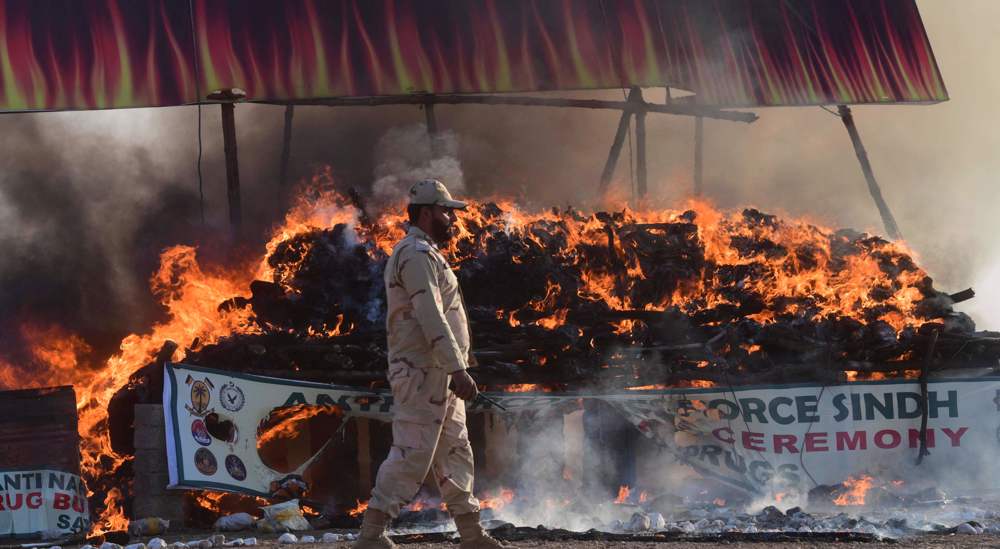
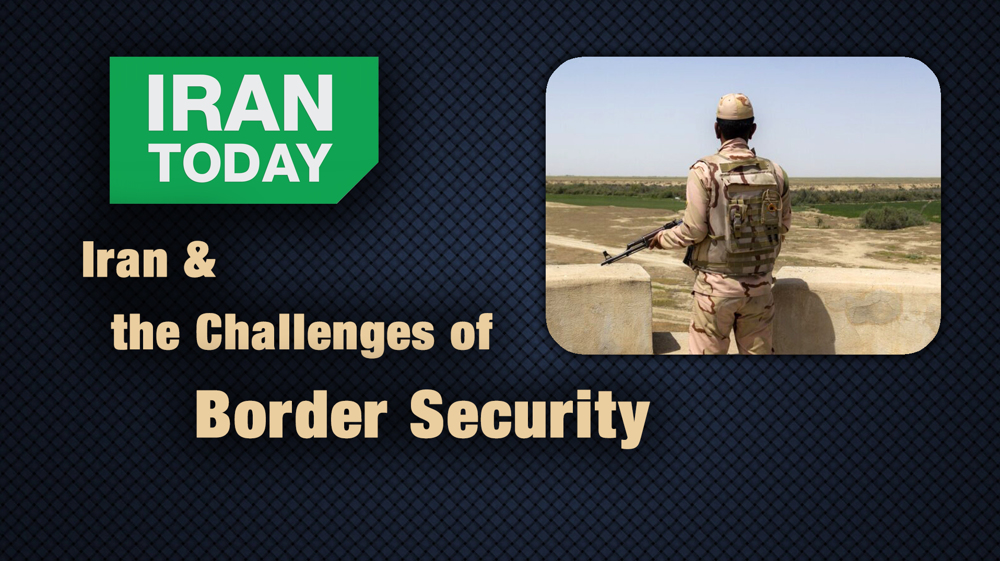
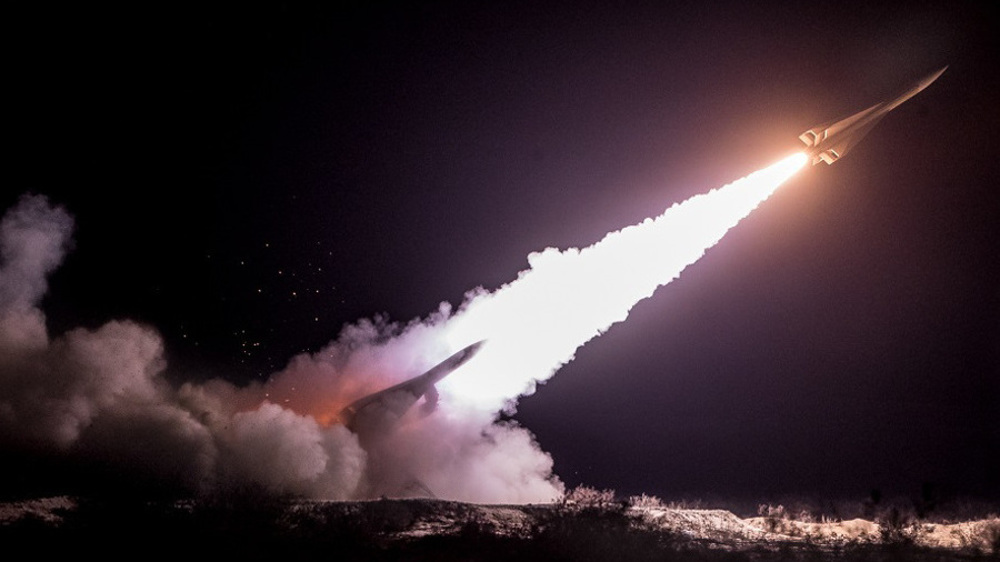
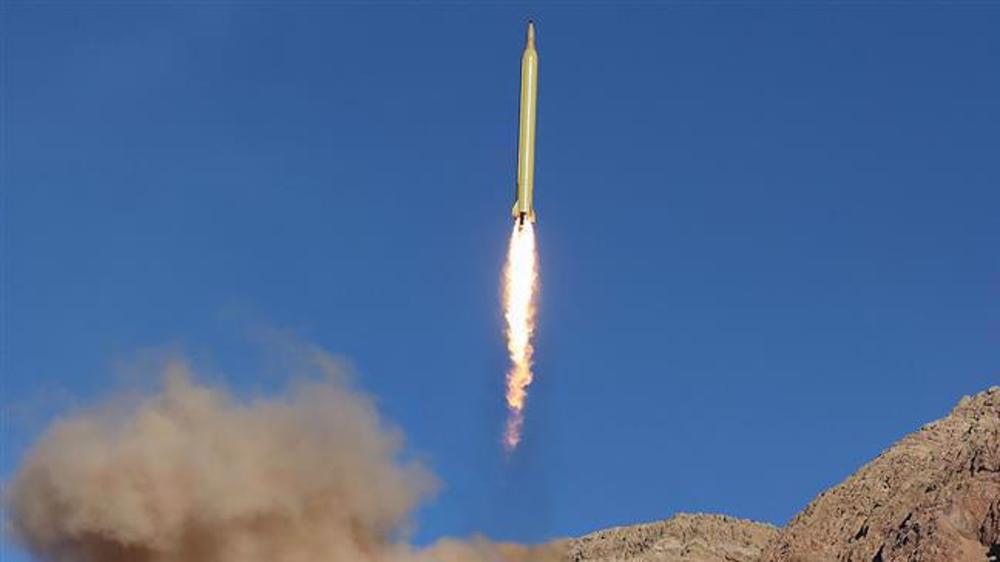
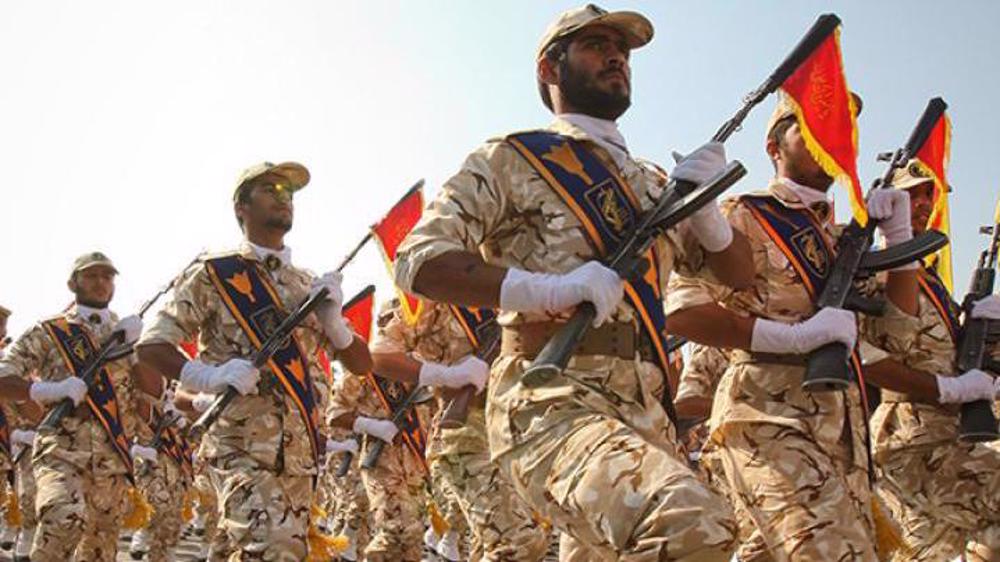
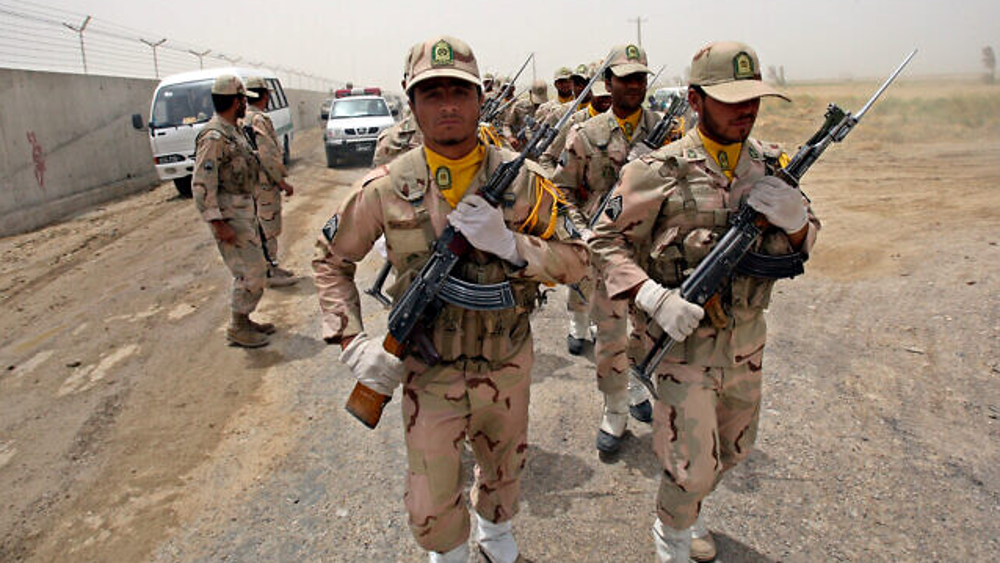
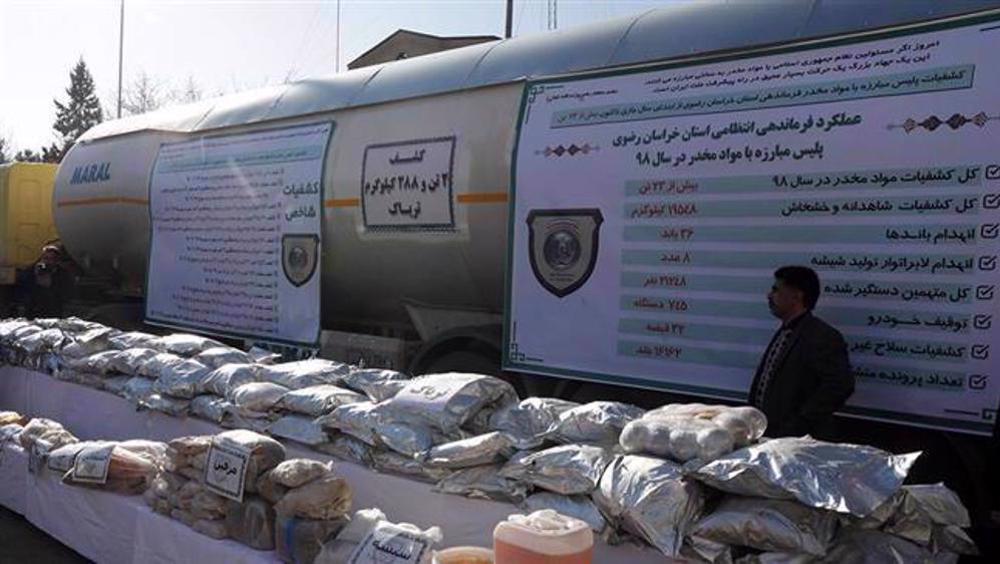



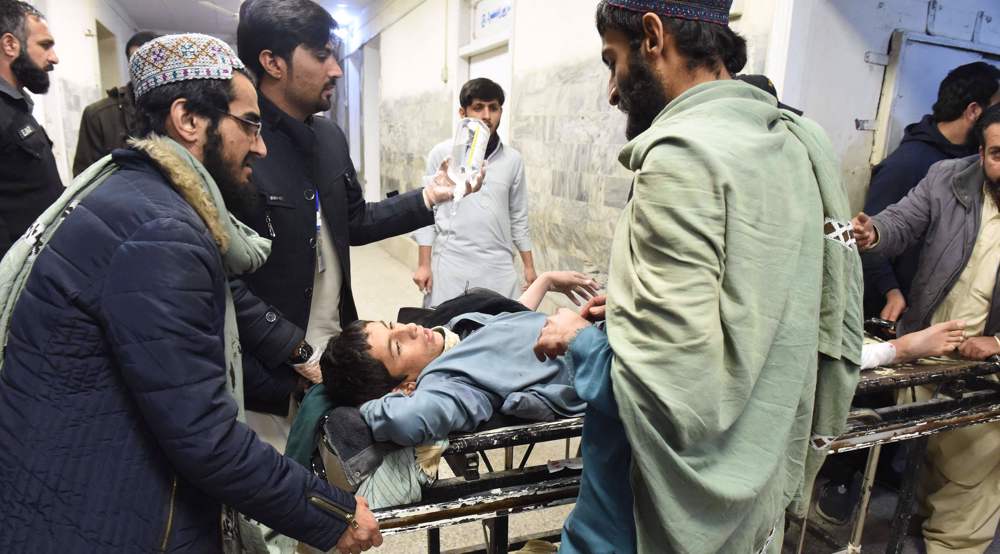
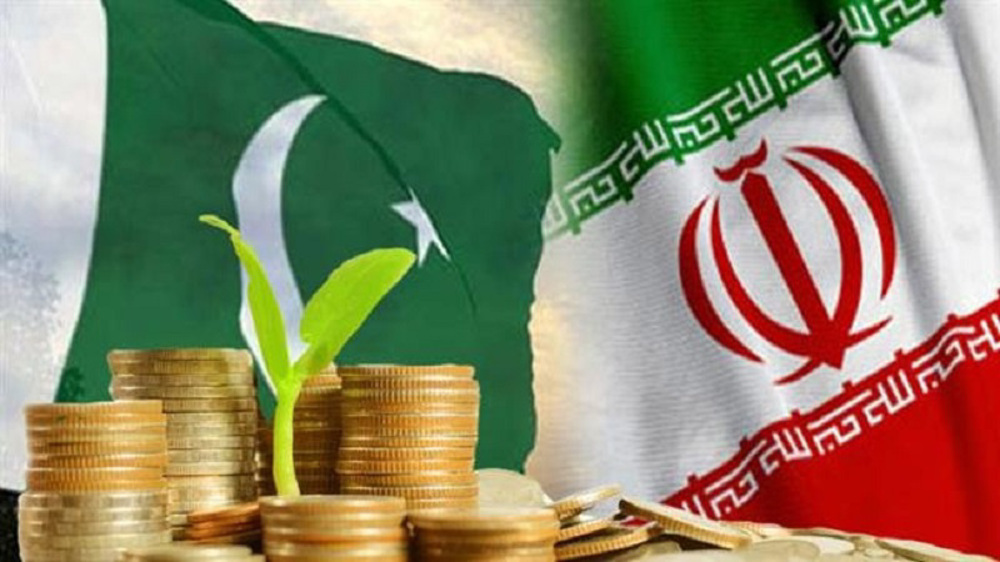
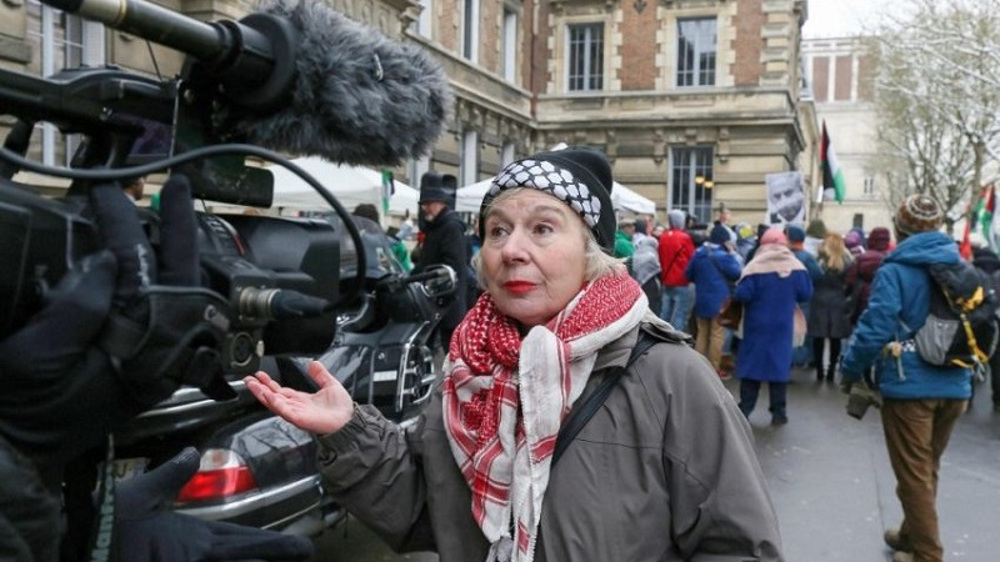
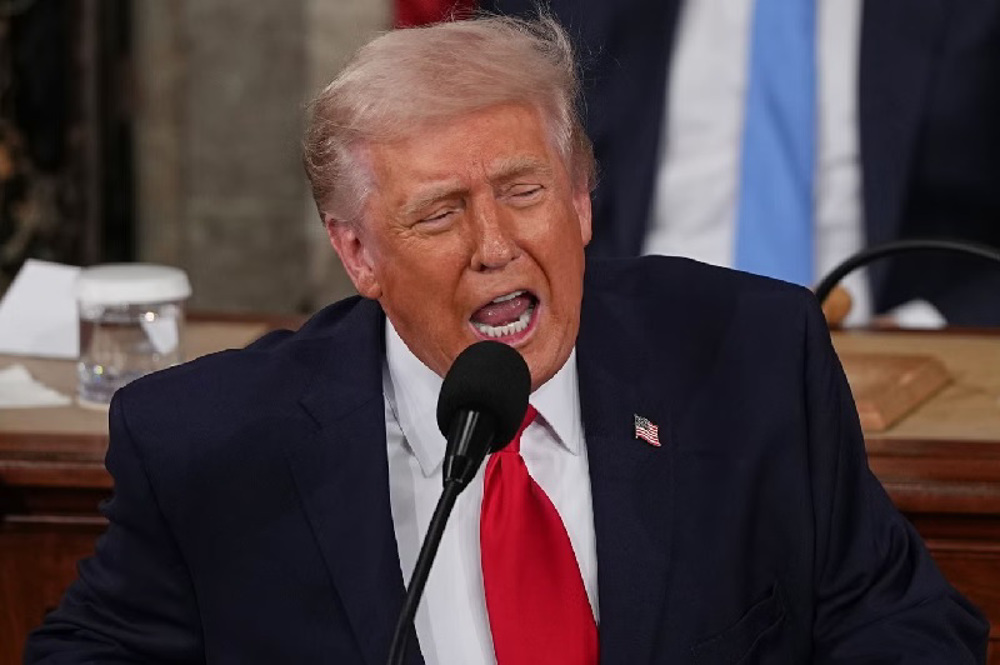
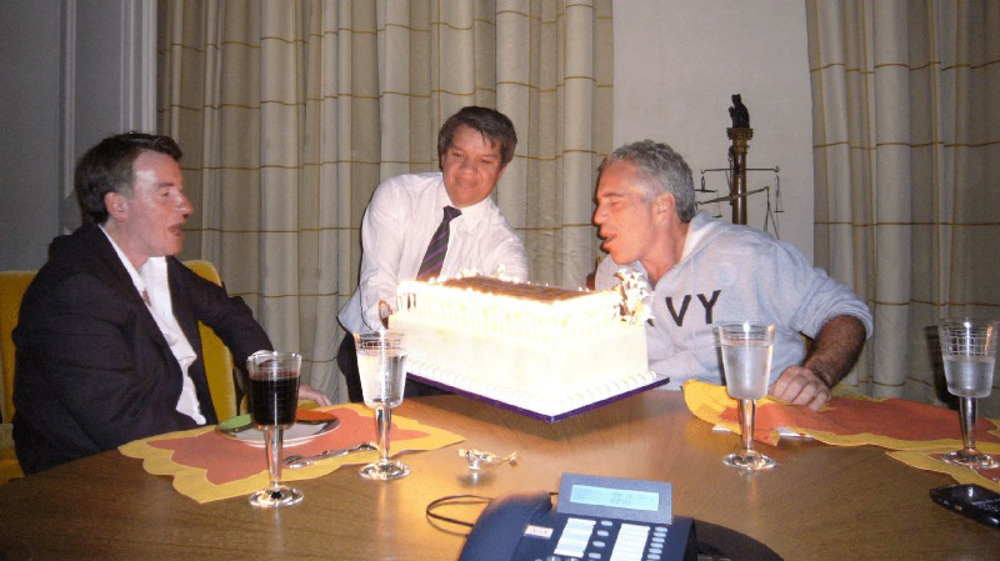




 This makes it easy to access the Press TV website
This makes it easy to access the Press TV website